Starting a registered apprenticeship program can be a great way to train and develop skilled workers for your business. Although often associated with trades such as electricians and plumbers, apprenticeships can also be found in industries such as healthcare, IT, and digital marketing. The basic premise of an apprenticeship program is simple: apprentices learn on the job, under the guidance of experienced workers, and receive classroom instruction to supplement their hands-on training. While many businesses people are familiar with hiring interns, the length of commitment, classroom and on-the-job training, and certificate upon completion are several of the key differences between an apprenticeship and an internship. A Registered Apprenticeship is a federal designation, and is administered by the Apprenticeship Office of the US Department of Labor (USDOL). In the US, the benefits of apprenticeship have recently gained some attention, notably from some at the highest levels of government.
In this blog post, we will explore the resources available to help companies start a registered apprenticeship program, and how you can use them to develop the skilled workers your business needs.
1. Connect with a Local Apprenticeship Consultant
A local apprenticeship consultant is an invaluable resource for navigating the process and accessing the support and resources you need to make your program a success. To get started, begin your search at apprenticeship.gov to connect with a consultant near you. These professionals provide guidance and assistance with setting up and administering apprenticeship programs. They can also help you navigate the registration process with the USDOL, provide guidance on developing training curricula and standards, and help connect you with resources to find potential apprentices.
Registered apprenticeships require documentation of your company’s practices and mindfulness of the USDOL’s guidelines. You can expect to cover the following topics with your apprenticeship consultant:
- Overview of Apprenticeship: In general, while there are a number of requirements that have to be fulfilled to qualify as a Registered Apprenticeship, the system is very flexible and meant to accommodate the varying needs of prospective apprentices and employers. Discuss your apprenticeship to determine if your business needs and ideas are a good fit for the registered apprenticeship program.
- Related Instruction: Every registered apprenticeship has its own set of requirements for related instruction (RI). Related instruction is the academic portion of the apprenticeship, and can be provided by a trade school or college, an online-learning platform, a professional organization, an employer, or other resource. The criteria for RI are very flexible. The end goal is to develop a curriculum that specifically prepares an apprentice for a career in the apprenticeship outcome profession.
- On-the-job Training: Every registered apprenticeship also has a tailored requirement for on-the-job training (OJT). OJT is provided by the employer, though could be supported by outside resources.
- Successful registered apprenticeship programs are generally formed in partnership between employers, educational organizations and workforce development agencies.
- Each registered apprenticeship has a single sponsor. In some cases, there could already be an apprenticeship in your industry, and your workforce center can help you identify similar programs or find a sponsoring organization.
Apprenticeship consultants can help identify potential funding resources, too. There are resources available to help offset the costs associated with setting up and administering an apprenticeship program. For example, there may be publicly available grants available to employers who are establishing registered apprenticeships. An apprenticeship consultant can help you navigate the various funding options available in your area and connect you with the resources you need to make your program a success.
2. Connect with Local Educators
As someone looking to start a registered apprenticeship program, you’ll find that local educators are a critical resource in the process. Apprenticeship programs require related instruction, which is typically administered by a local institution. This instruction can take various forms, such as classroom instruction or online learning. Local educators can assist you in developing the related instruction portion of your apprenticeship. By partnering with them, you can ensure that your apprentices receive high-quality instruction. When we created our digital marketing apprenticeship program, we found the apprenticeship support from the Colorado Community College System invaluable.
Local educators can also be a great pipeline for hiring an apprentice later on.
- Related Instruction: A local educator can provide feedback on relevant classes based on your particular program’s needs.
3. Connect with Workforce Development Organizations
When setting up a registered apprenticeship program, it’s important to connect with resources that can help you with the hiring pipeline and on-the-job training. Local workforce centers and non-profit workforce development organizations can be two valuable resources to consider.
Workforce centers and non-profits can assist with the hiring pipeline by connecting you with potential candidates for your apprenticeship program. Workforce centers are publicly funded entities administered by local government that provide a range of services to employers. They can help you identify and recruit candidates who are interested in learning new skills and participating in apprenticeship programs. Similarly, non-profit workforce development organizations may specialize in community outreach, job training, and can also provide resources and support for recruiting and onboarding apprentices.
- On-the-job Training: These organizations can provide resources and support for developing soft skills such as communication, problem-solving, and time management, which are essential for success in any workplace.
- Hiring: Reaching the right audience for a registered apprenticeship can be tricky, especially if you come from an industry without much experience in apprenticeships. Local organizations can help connect you with the right candidates in your community.
After creating our apprenticeship program, we worked with the Colorado Workforce Centers in our area. They were a vital resource which kept our pipeline full of potential apprenticeship candidates. (In time, we grew to receive applications directly from our website.) Another non-profit local resource center we connected with was Focus Points, a family-based resource center in Denver which provides career coaching and tools. Focus Points was instrumental in the pre-hiring stage for our first apprenticeship hire, bridging a gap for our first hire by preparing her for our application and interview process.
We recommend that you consider contacting and working with similar organizations in your community as you build your network of contacts for your apprenticeship. Both local workforce centers and non-profit organizations can be valuable partners in helping you set up and run a successful apprenticeship program.
Starting a registered apprenticeship program can be a great way to develop skilled workers for your business. At Two Octobers, we’re also interested in how apprenticeship supports a more equitable society. By tapping into local resources such as workforce centers, educators, and non-profit organizations, you can find and train the next generation of workers in your industry and ensure that your apprenticeship program is sustainable and successful for years to come.
Learn more about Two Octobers’ registered apprenticeship for digital marketing.




